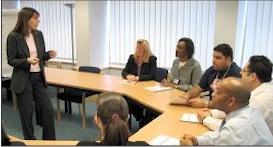Issues, critical incidents and crises can present many opportunities for the organisation that is open to learning. Meyers and Holusha (1986) identified seven potential advantages or gains which can arise from a business crisis:
- New leaders or heroes may be born
- Organisational change may be accelerated
- Latent problems are faced
- People are changed
- New strategies evolve
- Early warning systems develop for future issues
- New competitive edges appear.
During a crisis it is vital that actions are oriented to each of the following:
- containing the crisis
- fixing it
- communicating with the authorities and all other important stakeholders, and
- learning from the crisis without focusing on laying any blame.
The organisation which does not attempt to learn from a crisis or critical incident is foregoing a major opportunity. Many organisations which accept the challenge to learn from a crisis or incident quickly discover the potential of a proactive issue risk management program to limit their future exposure.
If you would like to learn from the experiences of others without personally undergoing such a crisis, contact KMG Consulting for details of how we can help you develop a crisis preparedness plan or issue risk management program before it is too late.


 Problems are different to a crisis. In fact organisations are often reasonably comfortable addressing problems. That’s what managers are good at – easy as ABC!
Problems are different to a crisis. In fact organisations are often reasonably comfortable addressing problems. That’s what managers are good at – easy as ABC! A number of industries and companies operate today in an atmosphere of mistrust, sometimes because of past wrongs committed, and at times because of the transgressions of another unrelated company or even industry.
A number of industries and companies operate today in an atmosphere of mistrust, sometimes because of past wrongs committed, and at times because of the transgressions of another unrelated company or even industry.






